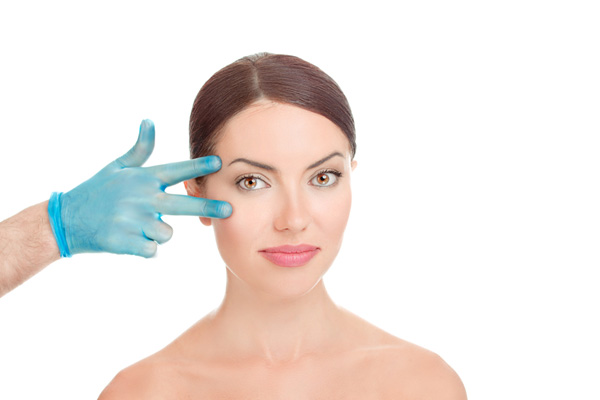How to Prepare for Liposuction Surgery

Liposuction surgery is a cosmetic procedure that removes excess fat from the body. It is one of the most popular cosmetic surgeries in the United States, with over two million procedures performed yearly. Yet, despite its popularity, many people are unsure how to prepare for liposuction or what to expect during recovery. This guide will reveal everything you need to know about preparing yourself before and after surgery so recovery goes smoothly.
How to prepare for liposuction surgery
One week before surgery
Preparation for liposuction begins seven days before the actual procedure. The main focus of this time will be to stop doing the following:
Taking nonsteroidal anti-inflammatory drugs (NSAIDs)
Patients can take Tylenol, but not drugs such as Asprin or Ibuprofen. These drugs increase bleeding risk during surgery and may increase bruising following surgery.
Taking herbal supplements
Many herbs react negatively to anesthesia. Therefore, we highly encourage patients to stop taking them at least two weeks in advance. If a patient takes herbal supplements, bring them up to the plastic surgeon during the consultation to ensure they are safe to use before or after the surgery.
Alcohol and nicotine consumption
Both alcohol and nicotine increase bleeding risk by thinning the patient’s blood. In addition, the tobacco makes the body more susceptible to infection and prolongs the recovery period. During recovery, patients must continue abstaining from tobacco use until cleared by their provider.
Shaving
We do not permit patients to shave the treated area, as doing so may increase the risk of infection at the incision sites.
Consuming high-sodium foods
Sodium increases fluid retention. This can increase the chances of prolonged swelling during and after surgery.
Additional Instructions
While additional instructions will be given to the patient, specific to their lifestyle, the patient can take time to prepare before the appointment. During this week of preparation, we advise patients to have all their necessary equipment for surgery. This includes:
- Loose or oversized, comfortable clothing that does not need to be pulled over the patient’s head.
- Antibacterial soap to help prevent infections. We recommend Lever 2000 or Dial soap.
- A walker or wheelchair to help the patient walk to the bathroom
- Entertainment (books, tv, movies, etc.)
- A tray that can be rolled close to the rest spot that holds objects (phone, remote, cups, medication, etc.)
- A grabber, so the patient does not have to bend to retrieve objects
- Many pillows to keep the patient in the most comfortable position
24 hours before surgery
The main focus of the night before surgery should be rest, relaxation, and ensuring the patient’s house is recovery ready. Patients are prohibited from consuming food or beverages eight hours before the surgery. Doing so will result in the immediate cancellation of the appointment due to safety concerns. Additionally, the appointment will be canceled if the patient does not have an appropriate ride home; this cannot be public transit, such as a bus or cab, but a trusted individual (friend, family member, etc.).
Day of surgery
For the day of surgery, we recommend patients wear comfortable, loose clothing that does not require being pulled over their heads. Patients should avoid wearing:
- Lotions or other moisturizers
- Perfume and body sprays
- Contacts or glasses
- Nail polish
- False eyelashes
- False nails
- Makeup
- Hair Pins
- Jewelry
- Hats or scarves
Patients are not permitted to eat or drink anything before their surgery; this will limit the risk of regurgitation during the surgery. Regurgitation is when food or liquid enters the lungs, increasing their chances of aspiration. We encourage patients to brush their teeth without swallowing water or using mouthwash and shower with antibacterial soap, especially considering they will not be able to shower for some time.
How to prepare for recovery
We highly advise patients to prepare their homes for recovery in advance to make their recovery as simple and comfortable as possible. First and foremost, patients should ensure they have a convenient place to rest after surgery. This can be a couch or bed, ideally close to a bathroom. It is also important that this spot is easily accessible, as the patient will likely need assistance during this time.
Additionally, patients should ensure a trusted caregiver (friend, family member, nurse, etc.) is in the home to assist them. Simple activities such as walking, showering, and other everyday tasks will be extremely difficult during the first few weeks of recovery.
Patients should also inform their employers of their impending absence that will follow for several weeks. If they have young children, it may also be necessary to seek care for them.
Request More Information Today
Liposuction is a popular plastic surgery procedure to help you achieve your body goals. Following the rules outlined in this guide is essential for the success of your treatment. Contact our office if you have additional questions related to your liposuction procedure or the recovery period. Our team is more than happy to walk you through the information.
Liposuction services are available at Paul C. Dillon, MD Inc in our Schaumburg office and the surrounding area. Visit https://www.paulcdillonmd.com or call (847) 429-3185 to schedule a consultation.
Check out what others are saying about our services on Yelp: Read our Yelp reviews.
Recent Posts
Choosing to undergo breast reduction surgery can provide much relief in more ways than one. However, there are a few things you must be aware of to have a smooth recovery phase, which happens to be split in two.Breast reduction recovery is largely split into phases– namely, the early phase and the later phase.The early…
If you are considering undergoing an eyelid lift, there are some things you need to do to prepare. This is an invasive surgical procedure that needs to be approached with care. The same goes for the recovery process. Here are seven preparation tips to ensure your procedure goes smoothly.Certain medications can cause issues during the…
One of the main concerns among individuals who are interested in plastic surgery is whether or not they can afford it. Unfortunately, many insurance policies do not cover elective plastic surgery, although there are times when plastic surgery might be paid for by insurance if there are health benefits.It is helpful to have a good…
Liposuction is a surgical solution for losing stubborn fat that does not respond to diet and exercise. Though not a weight loss treatment, this procedure can help patients get closer to their ideal body and tone up those last stubborn sections. However, those considering this procedure should work with a qualified plastic surgeon and know…


